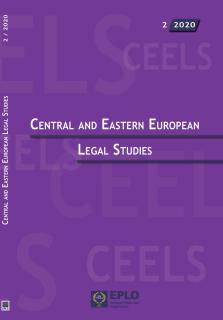
Removing the Legal Vacuum in European Law
with a View to a Common Language Certification at an EU Level
Legislative Proposals for Lifting Heterogeneous National Administrative Practices - European Initiatives Aiming to the Harmonization of the Framework
Appellate Attorney, PhD Candidate in Administrative Law at the National and Kapodistrian University of Athens, Postgraduate Degree in Public Law and Political Science with specialization in Administrative Law at the Democritus University of Thrace, Weiterbildung Deutsches Recht, Rheinische Friedrich-Wilhelms Uni Bonn
The present study discusses the necessity for robust decision-making procedures that would ensure consistency in the certification of language competences as well as in professional skills all across Europe. The author states that such an accomplishment would encourage not only free movement, but also equal opportunities in the workplace and Academia. In this respect, the responsibility lies on each Member State individually, which ought to align their legislation on education with the existing European Principles and laws. The study concludes that all of the above could be achieved through the extension of non-binding regulations, the so-called “soft law”. For instance, the introduction of Directions that would attach a binding force to the CEFR soft-law recommendation would potentially attribute a specialized legal personality to the language competences certification. Furthermore, inconsistent national practices should be harmonized with the principle of movement of workers in the EU as well as the principle of mutual recognition with a view to an equal treatment of the EU citizens and a mutual recognition of their skills. Finally, the author stresses the importance of the members of the CULT involvement in highlighting the necessity of a uniform certificate of language proficiency.



















